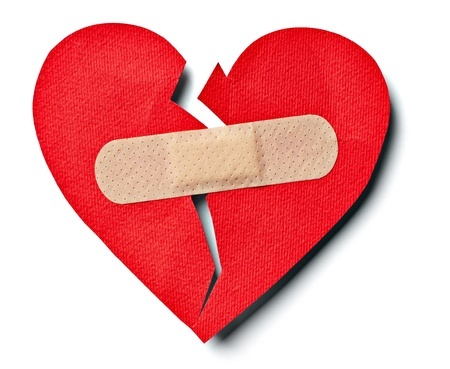Divorce and Maintaining
Etiquette Guidelines

Respect. It’s the one word to hold onto when going through a divorce. When either or both spouses decide to end their marriage, the fact of their decision must accommodate a respectful attitude, at least outwardly.
The etiquette guidelines for handling the end of a marriage are based on maintaining mutual respect for spouses, children, and other friends and family members who are affected by this difficult decision and process.
Facing the Facts
The events leading up to a divorce vary for any given family. However, the divorce itself and the events that are likely to follow are rather straightforward.
- Two people, legally and morally bound to one another have decided to live separately and, as much as possible, unencumbered financially and emotionally.
- Parents must make best possible arrangements for the care of their children.
- Established patterns of interaction with friends and acquaintances will alter or end.
- Feelings and emotions will necessarily be strong and often confusing, as hopes and expectations have been profoundly disappointed.
- Hurt, resentment and bitterness can surface publicly.
When it seems like divorce flies in the face of what is peaceful and when internal and external conflicts will change everything, saying that etiquette and the gathering of best manners will help you to rise above current intensities may appear comical. But they will always help in the realm of maintaining self-respect, if nothing else.
Acknowledgement Will Help You on Your Way
Accepting the decision to uncouple and facing the consequences of that decision are just the first steps in the process. Acknowledging how those facts play out in your reality is what follows.
- Acknowledge internally, that the decision to go your separate ways is an outcome of obvious or not-so-obvious conflict.
- Acknowledge that children may suffer long after their parents’ divorce.
- Acknowledge that you and all others involved may not behave at their best as realities have been shocked.
- Acknowledge that it’s natural to want to take sides and victim-create.
- Acknowledge that only you can choose your behavior and that there will be a future that your behavior now walks you into.
- Acknowledge that you are capable of employing principles of etiquette and good manners.
- Acknowledge that you need the help of an attorney, a therapist, a minister, and the people you love to get through this tough time. And learn to be okay with this acknowledgement. No one can do it alone.
Maintaining Etiquette During Your Divorce
The foundation for etiquette guidelines is showing kindness and respect for other people. Yes, even for the person you are divorcing. While many couples end their marriage amicably, many cannot. And even those who do separate amicably may hit a roadblock during the process.
Taking your emotions out of the situation is a good starting point. Pretend you’re on the outside looking in. This will help you keep perspective before you act in a way that may be in retaliation, or that comes from a place of blame or hurt. Not that any of these feelings may not be justified, but they won’t be helpful to current circumstances.
Be careful with your words and who you talk to. A close friend or family member will always have strong feelings against the person who hurt their loved one. Things may simmer down, and you find it in your heart to be friendly to your ex-spouse, but the people who love you will only remember that you were hurt. Take care with whom you share details.
However, it is important to remember that maintaining etiquette does not mean that you can’t stand up for yourself or your children. And a show of strength does not mean you are stepping out of bounds. It is possible to do what is best and right and still maintain respect for yourself and the other person involved.
Understanding that you only have control over your actions and reactions, and not those of other people, will help you decide what is appropriate for your individual situation. No matter how much you’ve been hurt or by whom, if you can keep your self-respect intact, you’ve done the right thing.














